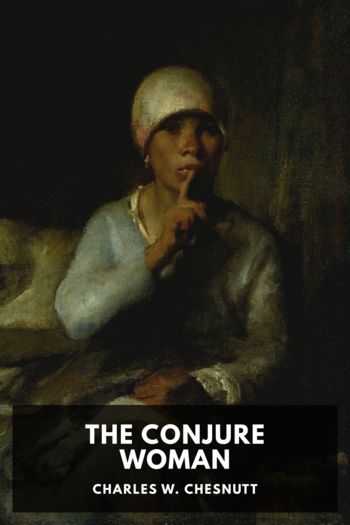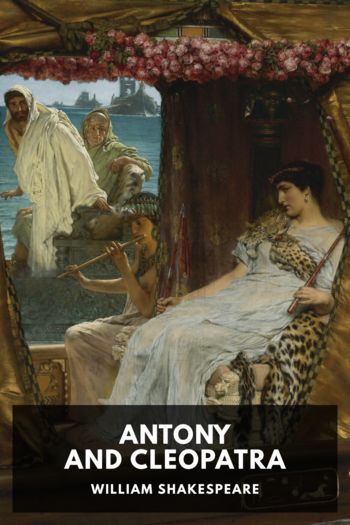Commentaries on the Gallic War, Julius Caesar [the chimp paradox TXT] 📗

- Author: Julius Caesar
Book online «Commentaries on the Gallic War, Julius Caesar [the chimp paradox TXT] 📗». Author Julius Caesar
Caesar, in five days’ march, went from that place to Gergovia, and after engaging in a slight cavalry skirmish that day, on viewing the situation of the city, which, being built on a very high mountain, was very difficult of access, he despaired of taking it by storm, and determined to take no measures with regard to besieging it before he should secure a supply of provisions. But Vercingetorix, having pitched his camp on the mountain near the town, placed the forces of each state separately and at small intervals around himself, and having occupied all the hills of that range as far as they commanded a view of the Roman encampment, he presented a formidable appearance; he ordered the rulers of the states, whom he had selected as his council of war, to come to him daily at the dawn, whether any measure seemed to require deliberation or execution. Nor did he allow almost any day to pass without testing in a cavalry action, the archers being intermixed, what spirit and valour there was in each of his own men. There was a hill opposite the town, at the very foot of that mountain, strongly fortified and precipitous on every side (which if our men could gain, they seemed likely to exclude the enemy from a great share of their supply of water, and from free foraging; but this place was occupied by them with a weak garrison): however, Caesar set out from the camp in the silence of night, and dislodging the garrison before succour could come from the town, he got possession of the place and posted two legions there, and drew from the greater camp to the less a double trench twelve feet broad, so that the soldiers could even singly pass secure from any sudden attack of the enemy.
Whilst these affairs were going on at Gergovia, Convictolitanis, the Aeduan, to whom we have observed the magistracy was adjudged by Caesar, being bribed by the Arverni, holds a conference with certain young men, the chief of whom were Litavicus and his brothers, who were born of a most noble family. He shares the bribe with them, and exhorts them to “remember that they were free and born for empire; that the state of the Aedui was the only one which retarded the most certain victory of the Gauls; that the rest were held in check by its authority; and, if it was brought over, the Romans would not have room to stand on in Gaul; that he had received some kindness from Caesar, only so far, however, as gaining a most just cause by his decision; but that he assigned more weight to the general freedom; for, why should the Aedui go to Caesar to decide concerning their rights and laws, rather than the Romans come to the Aedui?” The young men being easily won over by the speech of the magistrate and the bribe, when they declared that they would even be leaders in the plot, a plan for accomplishing it was considered, because they were confident their state could not be induced to undertake the war on slight grounds. It was resolved that Litavicus should have the command of the ten thousand which were being sent to Caesar for the war, and should have charge of them on their march, and that his brothers should go before him to Caesar. They arrange the other measures, and the manner in which they should have them done.
Litavicus, having received the command of the army, suddenly convened the soldiers, when he was about thirty miles distant from Gergovia, and, weeping, said, “Soldiers, whither are we going? All our knights and all our nobles have perished. Eporedorix and Viridomarus, the principal men of the state, being accused of treason, have been slain by the Romans without even permission to plead their cause. Learn this intelligence from those who have escaped from the massacre; for I, since my brothers and all my relations have been slain, am prevented by grief from declaring what has taken place.” Persons are brought forward whom he had instructed in what he would have them say, and make the same statements to the soldiery as Litavicus had made: that all the knights of the Aedui were slain because they were said to have held conferences with the Arverni; that they had concealed themselves among the multitude of soldiers, and had escaped from the midst of the slaughter. The Aedui shout aloud and conjure Litavicus to provide for their safety. “As if,” said he, “it were a matter of deliberation, and not of necessity, for us to go to Gergovia and unite ourselves to the Arverni. Or have we any reasons to doubt that the Romans, after perpetrating the atrocious crime, are now hastening to slay us? Therefore, if there be any spirit in us, let us avenge the death of those who have perished in a most unworthy manner, and let us slay these robbers.” He points to the Roman citizens, who had accompanied them, in reliance on his protection. He immediately seizes a great quantity of corn and provisions, cruelly tortures them, and then puts them to death, sends messengers throughout the entire state of the Aedui, and rouses them completely by the same falsehood concerning the slaughter of their knights and nobles; he earnestly advises them to avenge, in the same manner as he did, the wrongs which they had received.
Eporedorix, the Aeduan, a young man born in the highest rank and possessing very great influence at home, and, along with Viridomarus, of equal age and influence, but of inferior birth, whom Caesar had raised from a humble position to the highest rank, on being recommended to him by Divitiacus, had come in the number of





Comments (0)